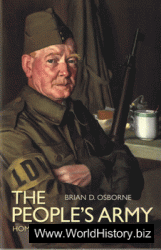Elegiac poetry often employs rhetorical arguments. The lines of Archilochus (fr. 5) on abandoning his shield provide a good example:
Some Saian exults in my shield, which I left beside a bush - a blameless piece of equipment - against my will.
But I saved myself. What do I care about that shield?
To hell with it! Another time I’ll get one just as good.
Archilochus pointedly argues that one’s shield (which can easily be replaced) is of lesser importance than one’s own life - a direct challenge to the prevailing ethos of hoplite warfare. In fr. 7 he draws upon consolatory topoi to persuade one Pericles (and other citizens) to bear up under the loss of their friends drowned at sea, by observing that grief comes and goes for all humans, and calls for endurance until it has moved on:
No citizen will enjoy the feast, Pericles, by blaming the woeful sorrows - neither will the city: such were the men the wave of the resounding sea washed down, while our lungs are swollen with grief. But the gods, my friend, have provided steadfast endurance as a remedy for incurable ills, which afflict different men at different times: now evil has turned to us and we bemoan our bloody wound; but in time it will change over to others. So, men, quickly shake off this effeminate grief and endure!
Tyrtaeus, fr. 12 uses an elaborate priamel (1-9) to argue that the most important attribute for a good man is ‘furious valor’. The rest of the poem (10-44) consists of a confirmatio that details the honors a good warrior receives, whether he lives or dies fighting for his homeland. Of a similar structure is Xenophanes, fr. 2, in which the poet contrasts the overvalued fame and rewards of athletic success with the true benefits that the city derives from his own civic wisdom (sophile)-.
But if someone should win a victory by the speed of his feet or in the pentathlon, there in the precinct of Zeus by Pisa’s stream at Olympia, or in wrestling or in painful boxing
Or in the savage contest they call the pancratium, he would appear more renowned to his townsmen and he would win a conspicuous front seat at the games, and he would be fed at public expense by the city, and would have an heirloom to treasure;
Or if victorious with horses, he would gain all these things - though not being as worthy as I, because better than strength of men or of horses is my wisdom (sophie).
Athletic prowess, he goes on to say, does nothing to advance the cause of the city’s good governance (eunomie) or its prosperity.
Mimnermus, fr. 1 poses a thesis for debate - ‘What life is there, what pleasure without golden Aphrodite?’ The speaker then declares his answer - ‘Let me die when I no longer care for sex’. The remainder of the fragment is a confirmatio that expatiates on the horrors of old age that deprive men of beauty and sexual attractiveness.
Solon’s elegies also contain rhetorical arguments. In particular, fr. 4, which was quoted by Demosthenes (19.255), argues that Athens will never perish because of divine disfavor but because its citizens are greedy and unruly. His purpose is to teach (didaxai, 30) his compatriots that good governance (eunomie) will lead to concord.
Theognis’ elegiac verses, like Hesiod’s counsels to his brother in the Works and Days, are didactic, addressed to his young friend and lover Cyrnus. They contain gnomic statements, exhortations to good behavior, warnings against keeping bad company, and analyses of the perceived corruption of society.40




 World History
World History









